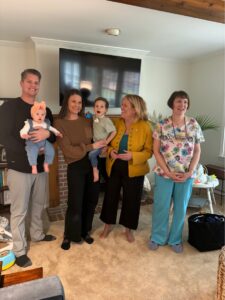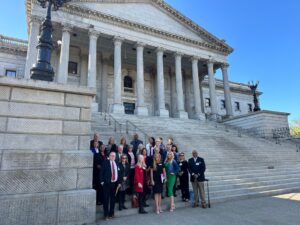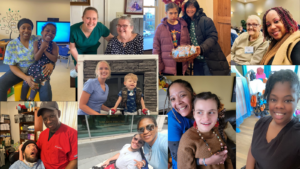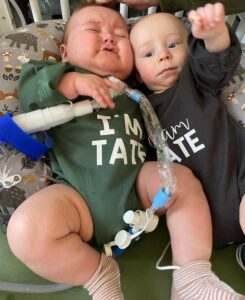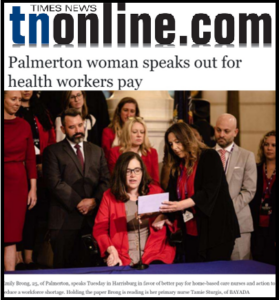Relying on a communication device to speak does not stop Mark from being a fierce advocate for disability rights and for the many individuals across the US that, like him, rely on in-home caregivers.
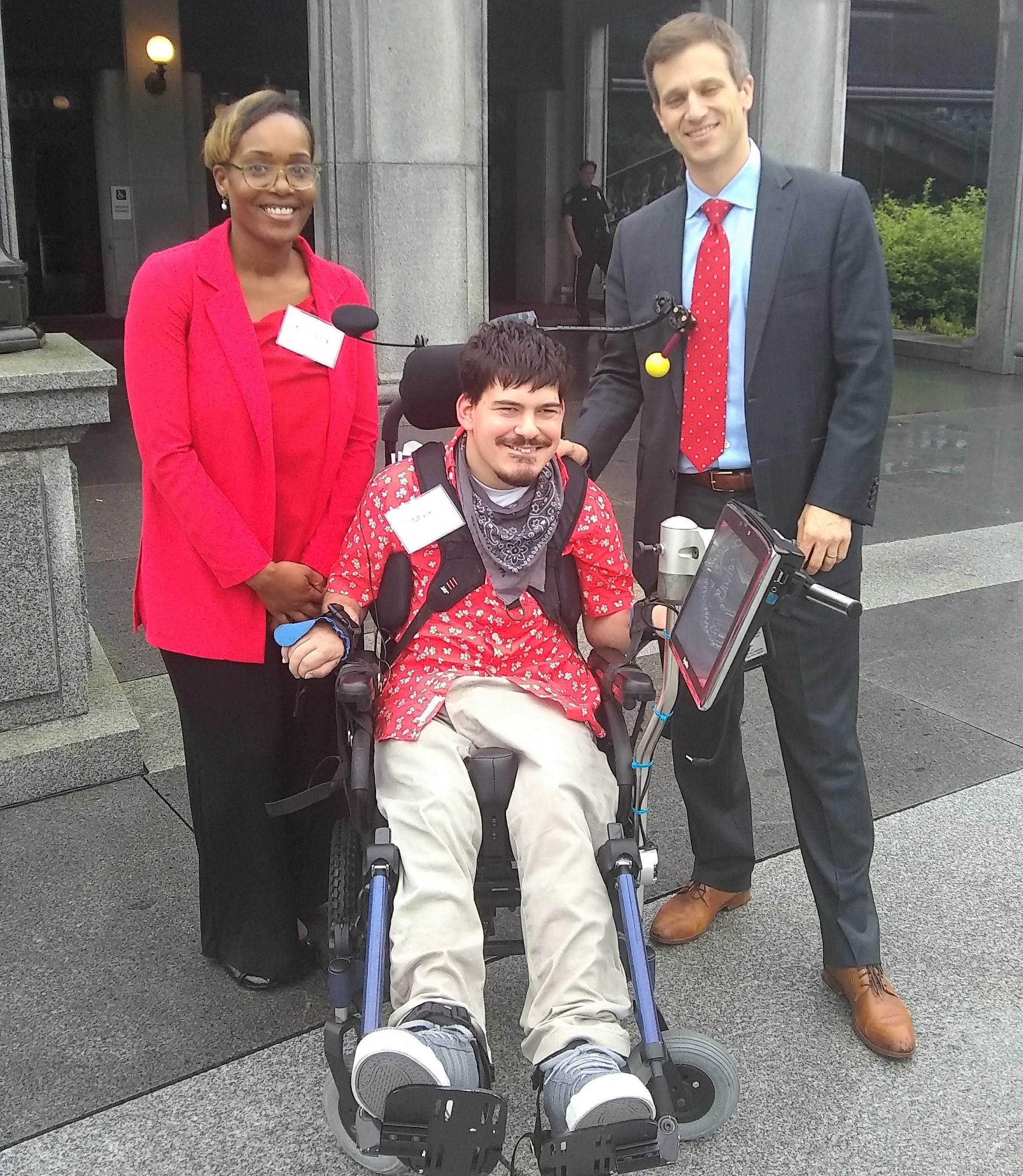
On May 22, Mark Steidl and his mother Tina joined hundreds of Hearts for Home Care advocates in Harrisburg, PA to express to legislators the importance of home care and of its impact on the thousands of Pennsylvanians that are able to remain safely at home with their families due to in-home services.
Harrisburg isn’t Mark’s first time joining with others to advocate for better policies. In addition to his participation in the Pennsylvania Homecare Association’s (PHA) Advocacy Day, Mark currently actively advocates on behalf of the National Council on Independent Living and the United Way of Southwestern Pennsylvania’s “21 and Able” project.
Not only is Mark an advocate, but his goal is to complete his Associate’s Degree in Social Work coursework, go on to obtain his bachelor’s degree, and eventually serve in a case management position so that he can continue to help others with disabilities. Mark, who is 23 and diagnosed with Cerebral Palsy, uses a Dynavox to communicate. Mark operates the device by using the switches that are affixed to his wheelchair at either side of his head. The Dynavox allows Mark to type out what he wants to say, and then the device’s speakers enable Mark to communicate out loud.
During their time in the state capitol, Mark and his mother met with Senator Jay Costa, Representative Paul Costa, and Representative Ed Gainey, who represents Mark’s district in the Pennsylvania House of Representatives. To prepare for the day, Mark used his Dynavox to create a message that he would share with each legislator. Mark found it important to not only advocate for himself, but for his caregivers. In addition to advocating for three key issues that PHA outlined as legislative priorities for the home care industry in Pennsylvania, Mark’s speech included the following:
“At home and in the community, I have personal care assistants who help me with various physical things. These assistants are very important to me, as they are to any person who needs one-on-one help, whether people with disability or older people. These aides enable us to live at home and avoid having to go to nursing homes.
“I am advocating today on behalf of home care providers who make it possible for us to have high-quality homecare services… When I think of my priorities as an individual with a disability, my first priority is my health and how it affects my life. But helping people maintain good health should also a priority for society.
I am pleased to be here today because you make decisions that affect people with disabilities and older adults. You have the power to create positive change and to enable people to live good lives!”
When Hearts for Home Care asked Mark to tell us why he advocates, Mark used his Dynavox to tell us:
“I consider myself an advocate for myself and for other people with disabilities. My disability is visible, and many people are likely to underestimate me and not see the person that I am. I have to challenge society’s perception each and every day.
I have to tell people when I first meet them why I use a wheelchair and communication device to talk. I have to explain cerebral palsy. People often wonder how I do school work without the use of my hands, so I have to explain that also.
All of us with disabilities have abilities and accomplishments, but we have to advocate for ourselves in order to create our place in the world.
The efforts of many dynamic leaders, innovators and activists affect our lives every day. The things I do every day would have been impossible 30 or 40 years ago. Before the changes in education laws that occurred in the 1970s, I would have been considered too disabled to attend public school, let alone Community College of Allegheny County. Thirty years ago – before the advent of electronic communication devices, I would not have been able to communicate with you. If I had been born in 1965 instead of 1995, my parents might have been told to send me to an institution instead of raising me at home with all the support I need. Times have really changed. Advocacy and new ways of thinking have created those changes.
But much more needs to be done and much more can be done. We have to keep advocating for the changes and the opportunities we want.”
Mark is an inspiration to many of his peers, and to many who understand the importance of sharing their voice on behalf of others. For ways you can advocate for yourself, your loved ones, and your community at-large, please email [email protected].

